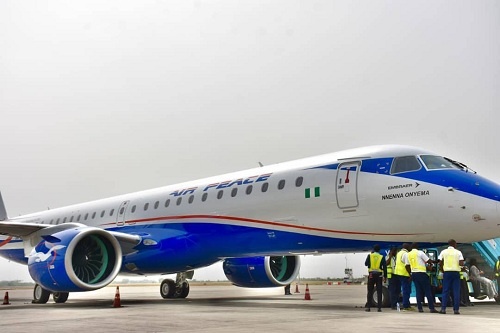
By Laolu Thomas
In April 2025, Nigeria’s aviation industry faced operational uncertainty when the Nigerian Meteorological Agency (NiMet) began industrial action. The strike halted the delivery of essential meteorological services required for safe flight planning. In response, Nigeria’s largest airline, Air Peace, made the crucial decision to suspend all domestic flight operations.
Though disruptive to its daily schedule and passengers, the airline’s stance was rooted in its unwavering adherence to aviation safety standards. This proactive move underscores Air Peace’s prioritisation of passenger and crew safety above operational continuity and profit.
NiMet plays an indispensable role in flight operations. It provides real-time data such as weather forecasts, wind direction, turbulence updates, and visibility levels—all of which are vital for flight safety. Without this information, pilots are forced to make critical decisions without verified atmospheric insights, especially during Nigeria’s rainy season, marked by heavy downpours and low visibility.
Minister of Aviation and Aerospace Development, Senator Festus Keyamo SAN, stressed the importance of these services. According to him, “services that NiMet provides are indispensable in aviation,” and, “it is unsafe to fly without their services.” His comments reflected the seriousness of the situation and the significance of Air Peace’s safety-first decision.
Globally, the International Civil Aviation Organization (ICAO) mandates that all international flights must have access to accurate meteorological data. ICAO’s Annex 3 lays out the standards for weather services, asserting that they are essential to ensure the safety, regularity, and efficiency of international air navigation. Operating flights without such validated data not only jeopardises safety but also contravenes international aviation agreements.
Despite this, some Nigerian domestic airlines continued their operations using alternative data sources during the NiMet strike. This move drew criticism from the Association of Professional Meteorologists of Nigeria. The body warned against the use of unverified weather data, highlighting the elevated risks associated with bypassing NiMet’s official resources.
Air Peace’s decision, although resulting in estimated losses of over N3 billion, was widely praised. International aviation bodies, insurance firms, and aircraft lessors all commended the airline for demonstrating responsible leadership. This calculated risk reflected strong corporate governance and an understanding that safety is non-negotiable in aviation.
In an environment where profit pressures often test ethical boundaries, Air Peace’s approach serves as a case study in disciplined corporate conduct. The decision was not only about grounded flights; it was about grounded principles—about doing the right thing when it mattered most.
Moreover, this event presents a moment of reflection for the Nigerian aviation sector. It brings into sharper focus the fragile dependency on government agencies like NiMet, and the cascading effects when such institutions falter. It also underscores the urgent need to create contingency frameworks that preserve core safety functions during administrative disruptions.
Once again, Air Peace’s firm adherence to aviation safety standards sets a benchmark. It reinforces public confidence and affirms that operational excellence is inseparable from safety compliance. In a business where the smallest oversight can lead to catastrophic outcomes, their leadership deserves recognition.
Mr Thomas is an Aviation PR Practitioner writing from Lagos.






















